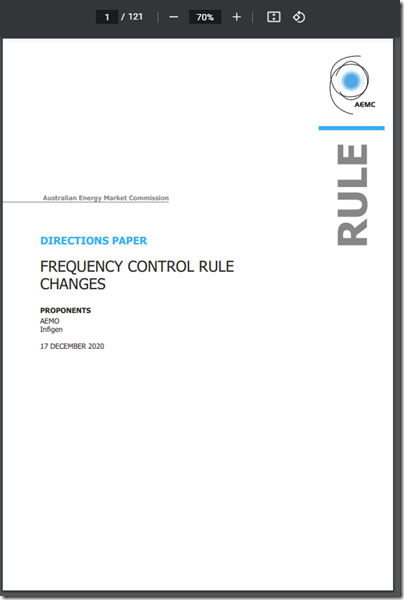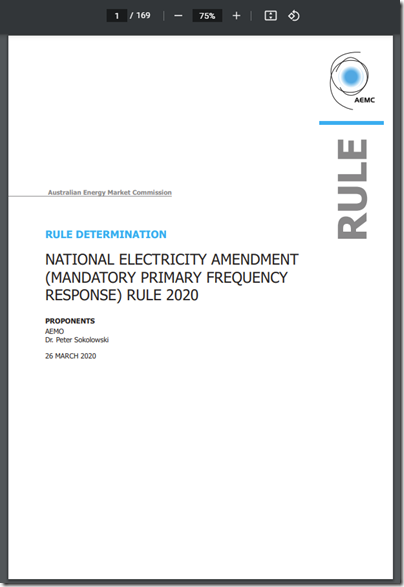In conjunction with today’s article exploring some of the recent changes to the distribution of system frequency, here is a quick overview of the changing regulatory landscape:
(A) AEMC published directions paper
On 17th December 2020 the AEMC published a directions paper setting out its initial views and high-level policy pathways to build a stronger electricity market by reforming the arrangements for controlling power system frequency:
This covered two rule change requests:
(A1) Fast Frequency Response (FFR)
The AEMC opened consideration of the establishment of FFR as a market service on 2nd July 2020 following receipt of a rule change request from Infigen Energy.
On 22nd April 2021 the AEMC published a draft determination – and earlier this week (on Wed 12th May 2021) Marcelle discussed the draft determination on Fast Frequency Response (FFR) in this article.
(A2) Incentive arrangements for Primary Frequency Response (PFR)
In parallel with FFR, the AEMC is also considering incentive arrangements for PFR, in order to establish it as a more sustainable measure for the market. Three options are highlighted, and the AEMC sought submissions by 4th February 2021.
The Commission intends to publish a draft determination for this rule change by 16 September 2021.
These initiatives are intended to supersede the interim arrangements established for PFR earlier in 2020 …
(B) AEMC ruling on mandatory PFR (an interim measure)
On 26th March 2020 the AEMC made a final rule determination to establish a mandatory Primary Frequency Response arrangement in the NEM:
This final rule includes a sunset on the mandatory primary frequency response requirement at 4th June 2023 (i.e. 3 years from commencement).




Is there any literature on the original decision to relax the primary frequency control deadbands, when that originally occurred?